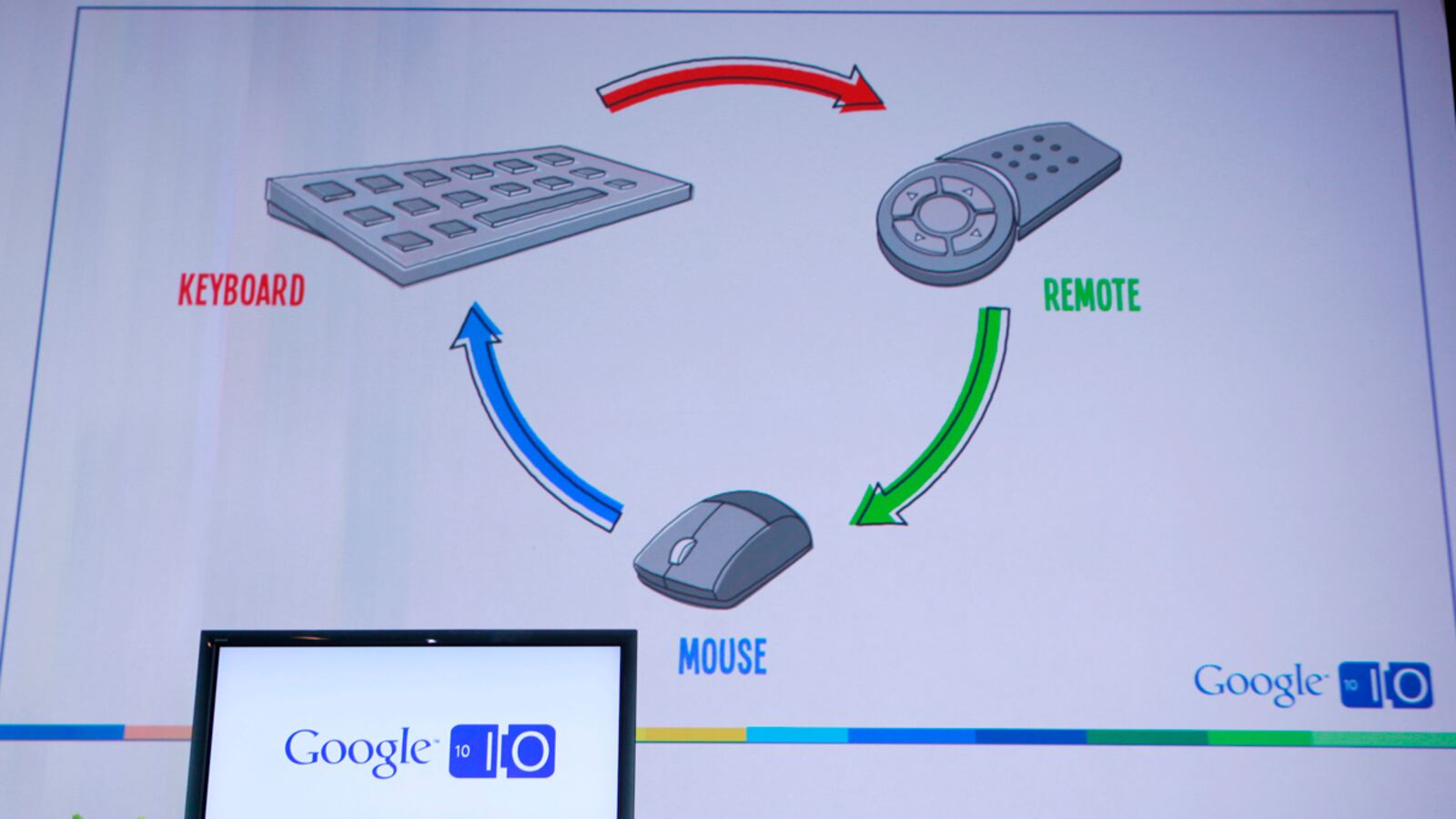Anthony Zuiker is 43 years old and has had the kind of storybook career that most aspiring TV writers dream about. A little over a decade ago he came up with the idea for a show called CSI: Crime Scene Investigation, and from this a booming franchise was born. Zuiker now produces three versions of the CSI show, and based on his track record one presumes he could keep on creating anything he wants for television.
Instead, he’s going to YouTube.
Zuiker is one of the big names that have signed on to build premium channels for YouTube, with budgets provided by Google. Others include Madonna, Amy Poehler, Deepak Chopra, and Ashton Kutcher. Google will spend $100 million on this first push, with more to come. It’s all part of a broader plan by Google to disrupt the existing TV industry, a plan that incorporates the Google TV (a box that brings the Internet to your TV) and even Android, Google’s mobile-phone operating system.
Today people talk about mobile devices as the “third screen,” coming after the TV screen and the computer screen. But someday, and perhaps sooner than we think, those mobile devices (smartphones and tablet computers) are going to be the first screen.
A decade from now there will be billions of these mobile devices strung around the planet. Imagine 5 billion people all on the same network (the Internet) and connected to each other through social networks like Facebook or Google+, and what you have is not the next version of television but rather an entirely new medium, one that will give birth to new ways to tell stories and new ways to make money.

Zuiker finds this appealing from both the creative and the business sides. He was drawn to YouTube first because it’s a chance to sidestep the bureaucracy of the regular TV industry and create shows without being hassled by a bunch of suits at a network armed with story notes and focus-group research about demographics.
Google, unlike the TV networks, is putting up money but not imposing any conditions or seeking to have any kind of creative control or input.
“We’ll be able to do pure artistic work on a large scale without creative interference. We are our own bosses here. We own the channel, the content, we develop everything in-house. It’s really a playground for the things we’ve been yearning to do since we got into the business,” Zuiker says.
As for the business side, “as we accrue content and begin to commit to this area, you’re going to wake up in five or 10 years with your own MGM. We’re going to own this content for a long, long time. This is going to manifest and grow into the future of what storytelling will be.”
The Web, in other words, gives people on the creative side of Hollywood the chance to control their own destiny. “It’s not a new medium—it’s a movement,” Zuiker says. “We are in the golden age of content, wrapped in the revolution of technology.”
Zuiker has teamed up with Tony Valenzuela, an Internet video-content creator who makes short horror films, and with Collective Digital Studios, which will produce the short films for YouTube. Their YouTube channel will be called BlackBoxTV. Zuiker says he will deliver 12 horror shorts, each one 10 to 15 minutes long. He’ll write and direct two of the shorts himself, and the others will be created by collaborators. He views them as test pilots; if one attracts a big audience, it could become a series.
Google didn’t want to make anyone available for this story, but my sense from talking to sources at the company is that Google is hoping to disrupt the TV industry by doing a kind of end-run maneuver around the networks.
So far the big hurdle that everyone in tech has hit when it comes to TV is that the networks control the content and don’t want to give it up—at least not under the kind of terms that tech companies have offered.
Instead of spending whatever huge sums would be required to pry content away from the networks, Google is spending money to create new content.
The message to Hollywood is something like this: you can keep your precious content, because all we want is your audience, and we’ll draw them away by giving them better things to do with their time than watch crappy shows about real housewives and old reruns of Seinfeld and Friends.
Maybe they will watch 12-minute horror films made by Anthony Zuiker, or maybe some kind of dance video made by Madonna. Down the road we will see entirely new ways to tell stories that nobody has yet imagined. Google’s $100 million investment (tiny for a company with $35 billion in the bank) is just a way to prime the pump. Disruption always happens this way, with something that starts out small and amateurish but gradually gets better and better.
So far the TV industry has done exactly the wrong thing. Instead of embracing change, it's fighting it. The problem is it's defending the indefensible. The TV model has gone rotten from all sides. On the content side, writers and producers hate dealing with bloated studios that have appointed themselves gatekeepers for what shows can be made. On the consumer side, nobody wants to pay $150 per month for 500 channels of stuff they don’t want, which is why more and more people are unplugging their cable subscriptions, and why an entire generation of young people have never bought into TV in the first place. From the business side, advertisers realize TV makes less sense than it once did and are moving away.
Google and other Internet video companies may seem like underdogs. But they are skating to where the puck is going, not to where it has been. History shows that is usually a winning strategy.





